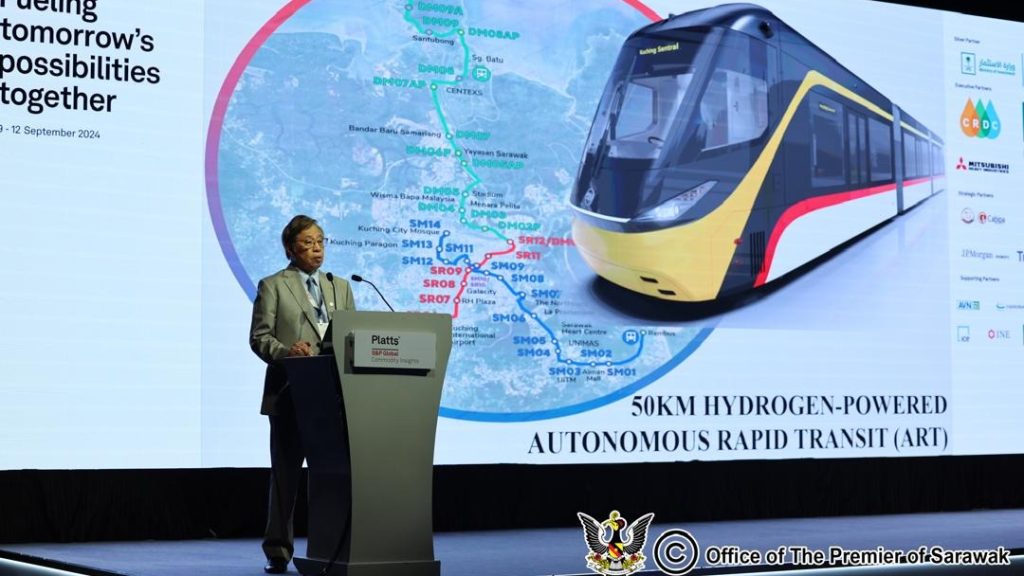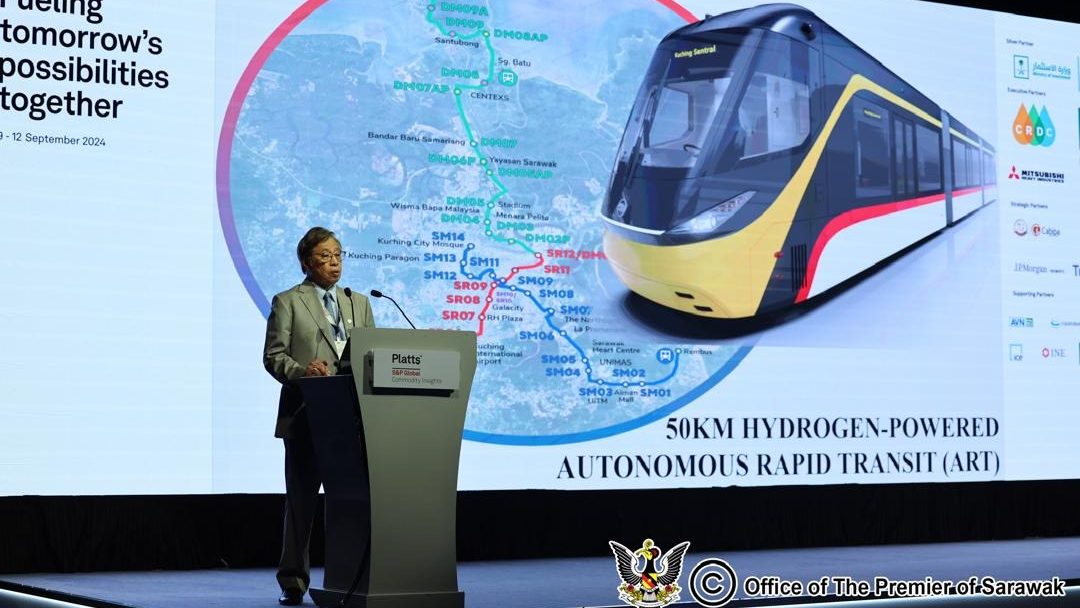Advertisements
Sarawak Sets the Standard for Green and Smart Ports

KUCHING (Sept 9) — Premier Datuk Patinggi Tan Sri Abang Johari Tun Openg has announced that Sarawak is poised to lead the Asia-Pacific region in the transition towards greener and smarter port operations. Speaking at the Asia Pacific Petroleum Conference (APPEC) 2024 in Singapore, he highlighted Sarawak’s strategic initiatives in sustainable port development, green energy, and advanced infrastructure that are setting the state apart.
“We are at the forefront, developing green ports, producing green fuel, creating a green fuel bunkering hub, and implementing a common utilities corridor for advanced port facilities,” said Abang Johari during his keynote address titled “Advancing Climate Change Solutions in a Divergent World.”
Pioneering Green Port Innovations
Sarawak’s approach to green port development includes the establishment of advanced port facilities powered by clean energy sources. The state is working on creating a green fuel bunkering hub, positioning Sarawak as a pivotal player in the Asia-Pacific maritime industry. These initiatives are part of a larger vision to create a more sustainable and innovation-driven economy, which includes producing sustainable aviation fuel (SAF) from microalgae.
Advertisements
Expansion of Infrastructure to Support Clean Energy
To bolster Sarawak’s clean energy ambitions, Abang Johari revealed plans for new gas terminal facilities and a modern Kuching International Airport that will prioritize sustainable infrastructure. These developments aim to meet the growing needs of transportation while minimizing environmental impact.
“We are building resilient and sustainable infrastructure, including gas terminal facilities and a new Kuching International Airport, to meet modern transportation needs,” he said. “This initiative aligns with our broader goal of creating a sustainable, innovation-driven economy, equipping our youth with the skills to thrive in high-tech industries.”
Advanced Sectors: Aviation, Aerospace, and More
Sarawak’s push towards a greener economy extends into the aviation and aerospace sectors. The state is investing in avionics, aircraft components, and cutting-edge aerospace courses to support its economic transformation. This focus on high-value industries is designed to equip Sarawak’s youth with the skills needed for the future.
Navigating Environmental Challenges in Infrastructure
Sarawak’s unique landscape presents its own set of challenges, particularly in road construction. The Premier highlighted the state’s efforts to construct elevated roads on peatlands, which helps preserve the peatlands’ carbon sequestration capabilities while improving transportation efficiency.
“Building roads on Sarawak’s challenging peat soils is akin to working with Singapore’s marine clay, but more complex,” he said. “To address this, we are constructing elevated roads that not only improve transportation but also support our carbon capture efforts.”
Green Energy Ambitions: Doubling Capacity and Beyond
Abang Johari stated that Sarawak aims to double its electricity capacity to 10GW by 2030 and further increase it to 15GW by 2035. This growth is part of Sarawak’s strategy to position itself as a green energy powerhouse in ASEAN. The state is leveraging AI-driven research to optimize energy production and distribution, aligning with its broader clean energy strategy.
Leading the Way in Green Hydrogen and Sustainable Aviation Fuel
Sarawak is making significant strides in green hydrogen production and the commercial development of SAF, underscoring its role as a leader in sustainable energy. The Premier emphasized the state’s commitment to exploring innovative technologies such as hybrid solar-wind and solar-hydro projects.
“Our vision is to position Sarawak as a global leader in the green hydrogen market,” Abang Johari said. “These hybrid solutions complement our hydropower expansion and are critical in reducing carbon emissions across multiple sectors.”
Sarawak’s Industrial Expansion: Methanol and Ammonia Production
The recently launched Sarawak Methanol Complex marks the state’s emergence as a leading global methanol producer, with an annual capacity of 1.75 million metric tonnes. Sarawak is also focusing on downstream ammonia production for urea fertilizer, crucial for enhancing soil fertility and supporting food security.
Exploring New Energy Sources: Biomass and Wave Energy
To further diversify its energy mix, Sarawak is exploring alternative sources such as converting coal plants to biomass and developing wave energy. The Premier noted that these initiatives are supported by strong governance and international partnerships, which drive Sarawak’s commitment to a low-carbon future.
Conclusion: Sarawak’s Leadership in Sustainable Growth
Premier Abang Johari’s vision for Sarawak is clear: to lead the way in green and smart port operations while setting new standards for sustainable development in the region. Through a combination of green energy, innovative infrastructure, and advanced industrial initiatives, Sarawak is poised to redefine what is possible in sustainable growth.


